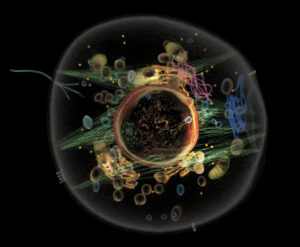Antidepressant predictor
EEG brain activity can predict who will respond to depression drug
A new method of interpreting brain activity has the potential to predict who can benefit from taking an antidepressant, according to a study led by Stanford University School of Medicine researchers.
Treatment for depression often starts with prescribing antidepressants. But finding the right one or identifying patients who don’t respond to antidepressants can take months — delaying decisions to try other treatments, said Amit Etkin, MD, PhD, professor of psychiatry and behavioral sciences.
In search of a way to predict which treatment will be effective for an individual patient, the researchers analyzed publicly available data from an earlier joint study from Stanford and the University of Texas-Southwestern called EMBARC, which obtained neuroimaging data from 228 people with depression before and after they were given a placebo or sertraline, an antidepressant marketed as Zoloft.
In the new study, the researchers applied an artificial intelligence technique they developed to identify signatures in the electroencephalography, or EEG, data predicting which participants would respond to sertraline. They focused on EEG because many psychiatrists already have the needed equipment. They published a paper on the approach Feb. 10 in Nature Biotechnology.
“It’s a method that can work across different types of EEG equipment, and is thus more apt to reach the clinic,” said Etkin, who was co-senior author of the paper with Madhukar Trivedi, MD, professor of psychiatry at the University of Texas-Southwestern. Etkin is founder and CEO of Alto Neuroscience, which develops biologically based diagnostic tests to personalize mental health treatments.
